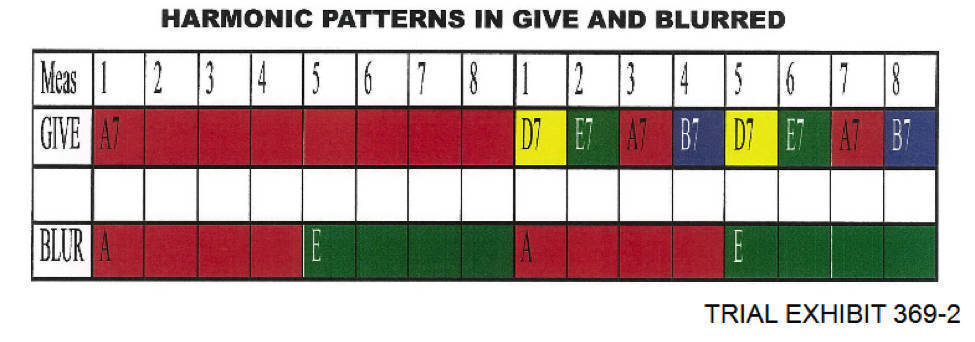
Howard King, whose clients Williams, Robin Thicke and T.I. were found by a Los Angeles jury to have infringed on the copyright of Marvin Gaye, offers an exclusive rebuttal. My clients and I are understandably disappointed in the jury’s verdict, especially given their absolute conviction that “Blurred Lines” came from the hearts and souls of Pharrell Williams, Robin Thicke and T.I., and no other place.
Should the verdict be allowed to stand, a terrible precedent will have been established that will deter the record labels that fund new music from getting involved with creations built on the shoulders of other composers. No longer will it be safe to create music in the same style or genre of a prior song. Since the verdict was announced, prominent songwriters from around the world have expressed their disappointment with the verdict and their overwhelming support for Pharrell, Robin and T.I.
Even Marvin Gaye was inspired by a prior composer in his creation of “Got To Give It Up.” As David Ritz highlighted in his biography Divided Soul: The Life of Marvin Gaye: In the lyric, Marvin turned the tune’s focus from himself to the image of a dancing woman, urging her to keep on moving, to shout, to get down, to get ‘funky.’ Earlier in 1976, Johnnie Taylor’s ‘Disco Lady” was a huge hit, considerably influencing Gaye. “I love the way Johnnie sings, and I thought it was a fabulous song,” Gaye said. “As good as disco ever got. I appreciated the picture of the super-sexy woman on the dance floor, though in my version, I tried to give it a little twist.'”
Before discussing the jury verdict, let me disabuse the world of the notion that our clients started this confrontation. A declaratory relief lawsuit was filed by our clients only after the Gaye family threatened to bring their own copyright infringement claim when discussions broke down in the face of the Gaye’s demand that they be given 100% ownership of “Blurred Lines.” More importantly, while our clients were always insistent that “Blurred Lines” was their independent creation, their respect and admiration for Marvin Gaye prompted them to make a substantial offer to compensate the Gaye children to avoid any confrontation. The Gaye children rejected such an offer, necessitating the lawsuit.
On the merits, there was no properly‑admissible evidence upon which the jury could have found copying. A comparison of the two songs readily reveals that there isn’t one note in the melody that’s the same, there isn’t one chord in the entire song that’s the same, and there are no more than three notes in the bass lines, out of twenty six notes, that are the same.
While the judge correctly ruled that only the sheet music deposited with the copyright office was at issue, the Gaye’s musicologist improperly testified as to several alleged similarities between the two songs that are not reflected in that sheet music. More incredibly, their musicologist testified that the lyrics were significantly similar, even though there aren’t two words in common.
Obviously, the jury was more interested in the testimony of the musicologists than they were in listening to the music as they deliberated for two days without asking to hear either “Blurred Lines” or the sound recording of those elements of “Got To Give It Up” that were in the deposit copy. A prime example of one of the exhibits apparently ignored by the jury shows the complete lack of similarities in the chord/harmonic patterns, one of the most basic building blocks of any song:
As Pharrell Williams testified, the two songs are like silk and rayon. Two completely different fabrics with the same feel. If this verdict is upheld, the creator of rayon better prepare for the infringement claims from the owner of silk. We pleaded with the jury to avoid what we thought were irrelevant distractions, such as unsworn press interviews given by Robin Thicke to sell records and Pharrell Williams‘ deposition testimony where he was arguing with opposing counsel over whether or not he was “comfortable” about answering musicological questions. It appears those diversions were more influential to the jury than the fact that the two songs are completely different.
It is also troublesome that the jury was not permitted to learn that the Gayes consulted with at least two prominent musicologists who declined to give an opinion that the songs were substantially similar before finding musicologist Judith Finell to provide the opinion they needed. We now head into the later innings of the contest. The jury exonerated co-writer T.I. and the various music labels and distributors, an inconsistency that is likely to affect the post-trial motions, including the Gaye’s promised motion to seek an injunction against further distribution of Blurred Lines.
Some creative gymnastics will be required to justify any injunction against the owner and distributor of the song recording after they have been adjudicated not to be infringers. There will undoubtedly also be substantial post-verdict discussions of the effect that Ms. Finell’s testimony, which should not have been admitted, had on this jury’s verdict. This dispute started with the Gaye’s claim that “Blurred Lines” infringed “Got To Give It Up,” entitling them to 100% ownership of “Blurred Lines.” While the Gayes are to be congratulated on obtaining a jury verdict, this matter is not finished by any stretch of the imagination.

